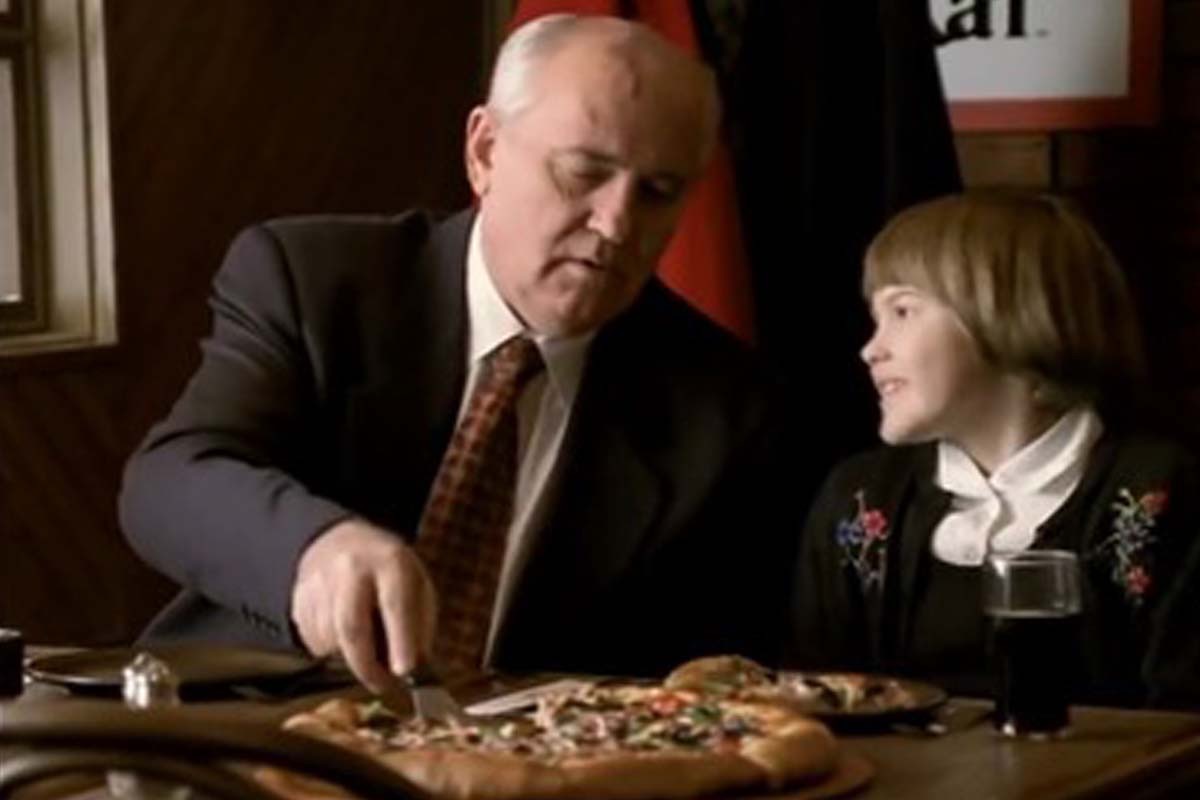There is a meme of Gorbachev that a Reddit user shared a few days ago. It is that of a kid asking him, ‘Did you finally get Pizza Hut?’ To which, Gorbachev says, ‘Yes’. The kid pushes: ‘What did it cost?’ An old, tired-looking Gorbachev replies, ‘Everything’.
Did Gorbachev have a choice?
The core idea of the West during the Cold War was to upset Soviet spending. When the Soviets were spending about 45% on infrastructure, the West kept pushing it to spend more than 50% on arms. A chunk of the spirit of the Cold War, if not all, in hindsight, was structured around the same theme – the phrase ‘arms race’ was familiar even to an Indian kid of the 80s who had access to TV. When the USSR stepped into the trap, it left them with less than 5% to spend on their citizenry. Gorbachev got dealt a cataclysmic hand, but he responded to the challenge. He made drastic changes to bring the spending on arms down. They were not substantial enough to resurrect the Soviet Union to its previous glory, but ones that could help it continue, few analysts say, like Turkey – as the sick man of Europe.
It was his second measure that undid his first.
Gorbachev made efforts to reach out to the West. He was supposed to have ‘good’ relations with Margaret Thatcher and Ronald Reagan; he hoped for reciprocation of sorts. It was quite an effort in fact. Back in 1988-89, Edward Lozansky, the current President of the American University in Moscow, and Paul Weyrich – an old-school conservative with a lot of heft in the US political circuit joined hands to present to none other than the President of the USA, George Bush, an elaborate proposal that was Gorbachev’s vision of a Soviet future – one that included freedom of emigration, embracing of western values, and a multiparty political system etc. In short, it was a proposal to voluntarily integrate the USSR into Western folds. This vision was put across through several columns and opinion editorials in noted American dailies, interviews, and through private, back-channel exercises. In his effort to reach out to the West, Gorbachev hoped for a Marshall Plan.
What happened? Condoleezza Rice and Robert Gates happened. Rice was the Russia-adviser to President Bush during those days; the one that persuaded Bush (who was otherwise quite convinced apparently with Gorbachev’s ideas) to go slow. And Robert Gates was the CIA director who stopped James Baker from signing on the NATO non-expansion proposal. Bush was to lose his election later (1992), and Gorbachev’s visions for Soviet reforms were to get buried under a newly-elected Bill Clinton and his advisers. Once Gorbachev opened up his country, the US wanted its wealth.
The US did not integrate Russia into their sphere because it was not profitable for them to do so till they could successfully create a new global enemy to validate the existence of their Military Industrial Complex. Riding on the wave of ‘fighting Communism’ and the USSR was how the IMF-World Bank-GATT-CIA-Pentagon colossus was flush with billions, and they exercised massive power and control. A USSR that integrated without a trace into a system that predicated itself on a bipolar rivalry would open a black-hole – one that would suck them all in.
But Gorbachev perhaps did not know that.
Genuine at heart or not, his contribution to ending the Cold War would remain unmatched. Former CIA analyst, Melvin Goodman notes that ‘Gorbachev’s decisions in a short six-year period from 1985 to 1991 were responsible for the decline in the Soviet military presence in every major region in the world, and the reduction of Soviet military aid and advisers in every key Soviet client state. He worked closely with the United States to resolve crises in Afghanistan, Angola, Cambodia, Nicaragua, and even the Persian Gulf.’
Back home, he remains viscerally hated for his fateful decision to withdraw from Germany; hated by those who understand the West’s rules of engagement. For it was this withdrawal that, many feel, triggered the NATO expansion and the conflicts associated with it – one that refuses to die even today.
Was Gorbachev a Manchurian Candidate? Did he genuinely believe that he could transform a fundamentally-flawed socioeconomic system or a party that had no faith in power-sharing, into a diverse and democratic setup? Was he someone who just happened to be around at the wrong moment, and one of his many wrong assumptions was his belief that as leader of the losing side, he could persuade an imperialist, supremacist power to comply with his wish?
At the end of the innings that was the USSR, as individual and collective tragedies, life and times of million men that lived and died transformed into a copious amount of philosophical work and layers of a world-view that continues to dazzle us despite their different shades of grey, would the world remember him as the man who ended the most protracted conflict of the last century, or would it relegate Mikhail Gorbachev as a small pawn of the huge slap in the face that the Pizza Hut advertisement delivers with its message: ‘Stupid! It was always about the money’…?
There are no easy answers to that.

